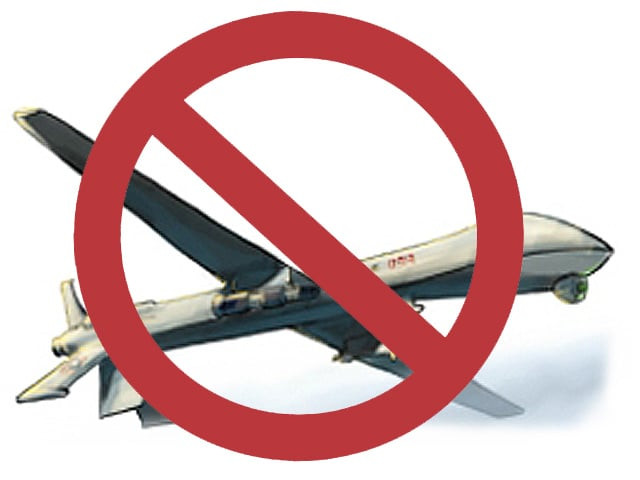Pakistan not pushing for end to US drone strikes
Authorities are instead seeking control of human intelligence on ground for target specification of their choice.

Contrary to public posturing, Pakistani authorities are not pushing the US to halt drone strikes inside its tribal regions and are instead seeking control of human intelligence on the ground for target specification of their choice.
“This is the maximum they have been seeking. Nothing more,” said an official privy to talks held this week between civilian and military leaders from Pakistan and the US that culminated in breaking a seven-month deadlock on the resumption of Nato supplies.
The demand of seeking control of human intelligence vital to guide drone strikes is in sharp contradiction to a resolution passed by parliament earlier in the year, calling for cessation of attacks by the pilotless planes operated by Americans to hit top al Qaeda operatives.
Officials said both political and uniformed leaders are on the same page when it comes to an opinion on drone hits but military high-ups and intelligence operatives are keener to have the remote control in their hands.
“They know the US will never step back as they have been saying … so the idea is that it is better to have something that suits you than losing it all,” one of the officials said, explaining the reasons behind the contrast in private and public positions.
There have been reports in the past that Pakistani military authorities are worried about the killing of activists from groups that do not create problems inside their country and focus their energy on across the border.
Although the military usually denies this notion, a spokesperson was not available for comments on this information.
Control on human intelligence, or Humint as it is technically called, would give Pakistani secret outfits a chance to select targets of their choice to be hit by drones, such as the Tehreek-e-Taliban Pakistan (TTP).
Pakistan’s leniency is evident from the fact that despite all the hostility in its relations with the US after last year’s Salala attacks, drone strikes restarted in January or within two months of the incident.
Last week, both countries managed to remove a key irritant troubling their ties by agreeing on reopening land routes through Pakistan for supplies to international forces stationed in Afghanistan.
But several crucial issues remain unresolved, with drone strikes at the top of factors that continue to generate a hostile reaction by political parties and a cluster of religious groups opposed to the country’s war on terror role.
Pakistani civilian and military leaders have been telling countrymen they want a complete end to drone strikes responsible for killing more innocent civilians than active al Qaeda associates.
But their behind-the-scenes positions are quite different, said an official who spoke to The Express Tribune.
The fact is that the drone campaign serves Pakistan’s objectives because top al Qaeda affiliates and its local associates are the targets in most cases.
“That is where they like it. It is doing their job with minimum efforts and energy, and more importantly they don’t have to face the blame,” said the official.
Published in The Express Tribune, July 6th, 2012.



















COMMENTS
Comments are moderated and generally will be posted if they are on-topic and not abusive.
For more information, please see our Comments FAQ